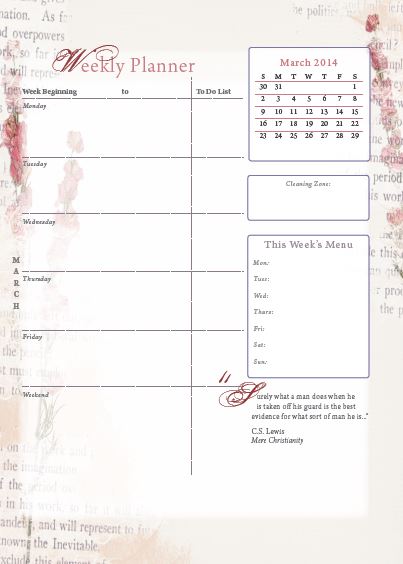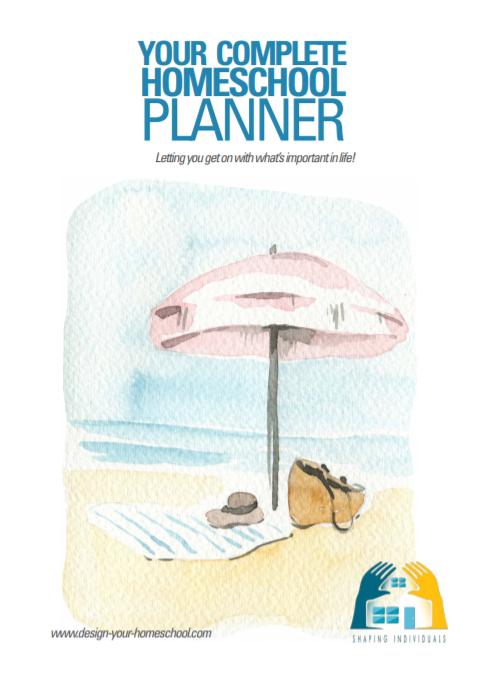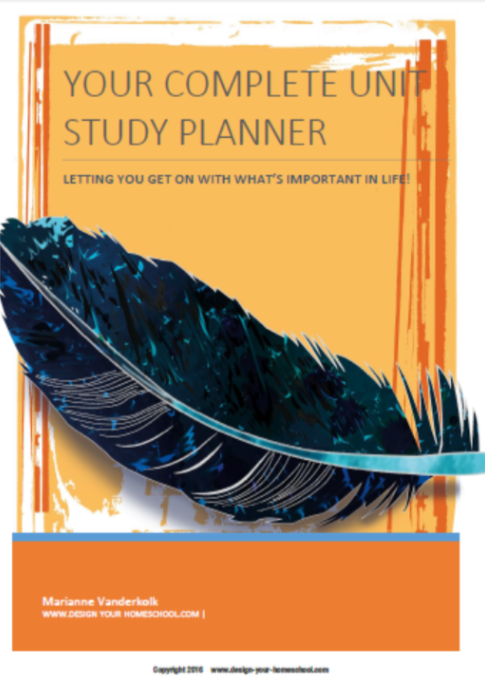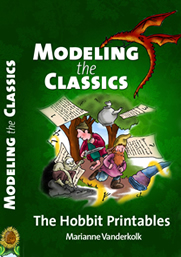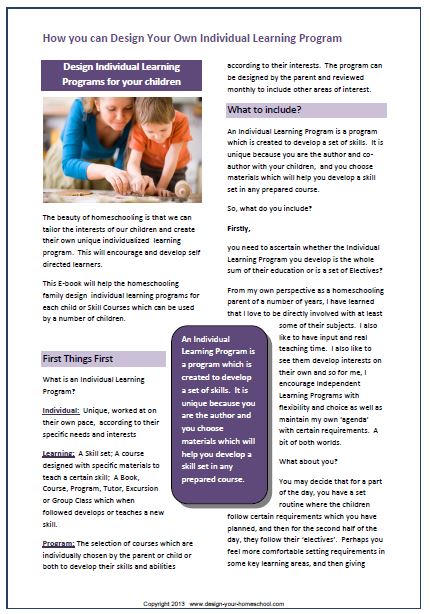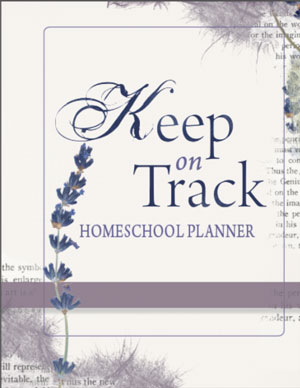Teaching Homeschooling Subjects outside the Unit Study
Not all homeschooling subjects fit neatly into a Homeschool Unit Study. So, how do I teach these other subjects?
We can squeeze them in of course, but at times, you may find it easier to continue a separate program for some of these subjects. Let's view a few of these homeschooling subjects and work out ways in which we can approach these.

Homeschool Maths
Will you follow a book or CD program, games, or maths in every day context? Homeschool Math will sometimes tie in nicely with your unit study, but if you teach all your mathematics in this way, it will not be covered in a sequential way unless you specifically program it that way. You need to think about when and how you will introduce formal mathematics.
For those wondering when to begin formal mathematics, you may find this article very interesting and worthwhile.
Harvey Bluedorn, from Trivium Pursuit, writes:
Provincialism is the word which we use to describe an opinion which is narrow and self-centered in perspective. Because the common practice in our culture in our day is to begin formal instruction in arithmetic as early as age four or five, many have questioned the suggestion that one may wait until age ten before beginning formal instruction in arithmetic. Waiting until age ten for formal instruction in arithmetic is often misnomered "late start" or "delayed academics."
A broader perspective would examine more than what is simply the prevailing practice of a particular culture at a particular time – especially if that practice is a policy largely imposed by the government. We don’t claim to have the last word on the subject, but we have examined the matter more broadly, and in this article we will present some of the things which we have discovered. We will quote only a small selection from authorities we have found, and we will allow you to form your own opinion before we comment.Continue reading this interesting article, Research on the Teaching of Math; Formal Artithmetic at Age Ten - Hurried or Delayed? by Harvey Bluedorn from Trivium Pursuit.com
Need more help with Homeschool Maths? Click Here!
Spelling
Homeschooling subjects such as Spelling can be taught in the context of the Homeschool Unit Study.
Here's some ideas.
You can choose words from the unit study and make spelling lists accordingly, for the different ages. You may also build a list as you go and add words which are mis-spelt in the context of writing for the unit study.
For example if the unit study is about Ships, appropriate vocabulary and spelling words could be: row boat, tankers, freighters (discuss the eigh phonogram- what other words have this phonogram? List them; Write them on a chart) tiller, sails, cabin, port, ship, kayak, deck (we use "ck" because the 'e' is saying its short sound; What other words are like that?-sick, track, rock, peck, truck...) sailor (the 'or' ending shows us that it is someone who sails - Can you think of other words which describe people doing something?- doctor, actor..)and so on.
If you teach spelling alongside a Phonics program, then you will need to choose what will work for you. We have used the Light Educational Ministries Phonics program and spelling lists.
This is very comprehensive and teaches more than 70 phonograms with Australian pronunciation and spelling. It includes the spelling rules. The entire program includes phonogram cards, workbooks, CD with the phonograms, Teacher’s Manual.
There are many other ways to teach spelling.
Check back at the Language Arts Sitemap for new pages.
Grammar
How will you approach Grammar?
Some aspects of Grammar can be taught in the context of the unit study – such as parts of Speech – but some parts of teaching grammar need a separate study- studying roots, prefixes, suffixes and so on.
You may choose to study grammar in context and in the latter primary years, introduce more formal grammar lessons.
How do I study Grammar in context?
Well, let's go back to the Ship Unit Study.
Nouns and Verbs
You can begin by introducing just nouns and verbs. (Memorize the definition of a noun. We have memorized these definitions to chants and movement. It is amazing how quickly children retain the definition.)
Learning to sing Grammar in song is also a great way to memorize the parts of speech. We have used the book and CD of Grammar Songs (You Never Forget What You Sing) for years and my youngest just grow up knowing the definition by singing along.
A good way to start with nouns and verbs is to write a two word-per-line poem. Each line should have a noun and a verb.
Ships sail.Winds blow.Waves pound... and so on.
You can write the nouns on one side of the page and the verbs onthe other and ask, "What else do ships DO?" "move" "drift" "crash" "sink". These are all written on the verb side of the page. What else does the wind DO? "thunders", "howls" and so on. More words written on the verb side of the page.
Adjectives and Adverbs
If you are introducing adjectives (Words that modify nouns or pronouns) ask the questions: "Which ship?", "What kind of ship?" "How many ships?" and "Whose?". These questions give you adjectives.
I like to see grammar in a visual way, so I would ask my children to write "Ships sail" in big letters on a page. Then in coloured textas, I would ask them to describe the ship and write a whole series of words which answer the above adjective questions and link those words to ship with lines.
You can continue and add adverbs (adverbs modify verbs, adjectives or other adverbs.) Here you would ask questions to the Verb and the answers would be adverbs. You need single words as answers. Remember adverbs often end in 'ly'. The Questions are: How did it sail? (smoothly) When did it sail? (suddenly) Note: If your child said, "at night"- it would be an adverbial prepositional phrase- 2 words- try to keep it simple at first.Why did it sail? (purposefully),Where did it sail? (far) To what extent did it sail? (also)
I would then ask them to link the adverbs to the verb.
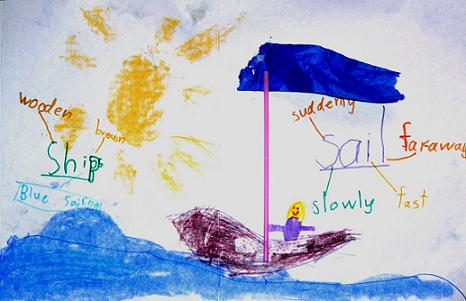
Working with a Text
Otherwise, you could take a passage from a book you are reading in your unit study, copy from it, and dissect it as a grammar exercise.
For example:
"Merchant ships often travelled great distances across the open sea."
Firstly,we remove the prepositional phrase by putting it into brackets:
"Merchant ships often travelled great distances (across the open sea.)
Then we look for the subject. - ships- and then locate the main verb. (There will not be a verb in the prepostional phrase.)We ask the question? "What does the subject DO?" What do the "Ships" Do? The ships, "travelled." Correct!That is the main verb.
Then, you can go on and find more nouns in the sentence (sea, distances);
Find adjectives (merchant,the, open, great);
Find the adverb (often).
If you have not done this before, it will take some time to learn the skills, but I find it a worthwhile exercise to do together. It is great (and a lot of fun) if you can work through this process together.
Winston Grammar is a program which works in this way.
I have used this approach to language arts while studying the Hobbit.
See my e-book Modeling the Classics.
More information on language arts lesson plans incorporating grammar are here.
There are different ways to study Grammar.
Check out more information on my Eight Parts of Speech Page.

